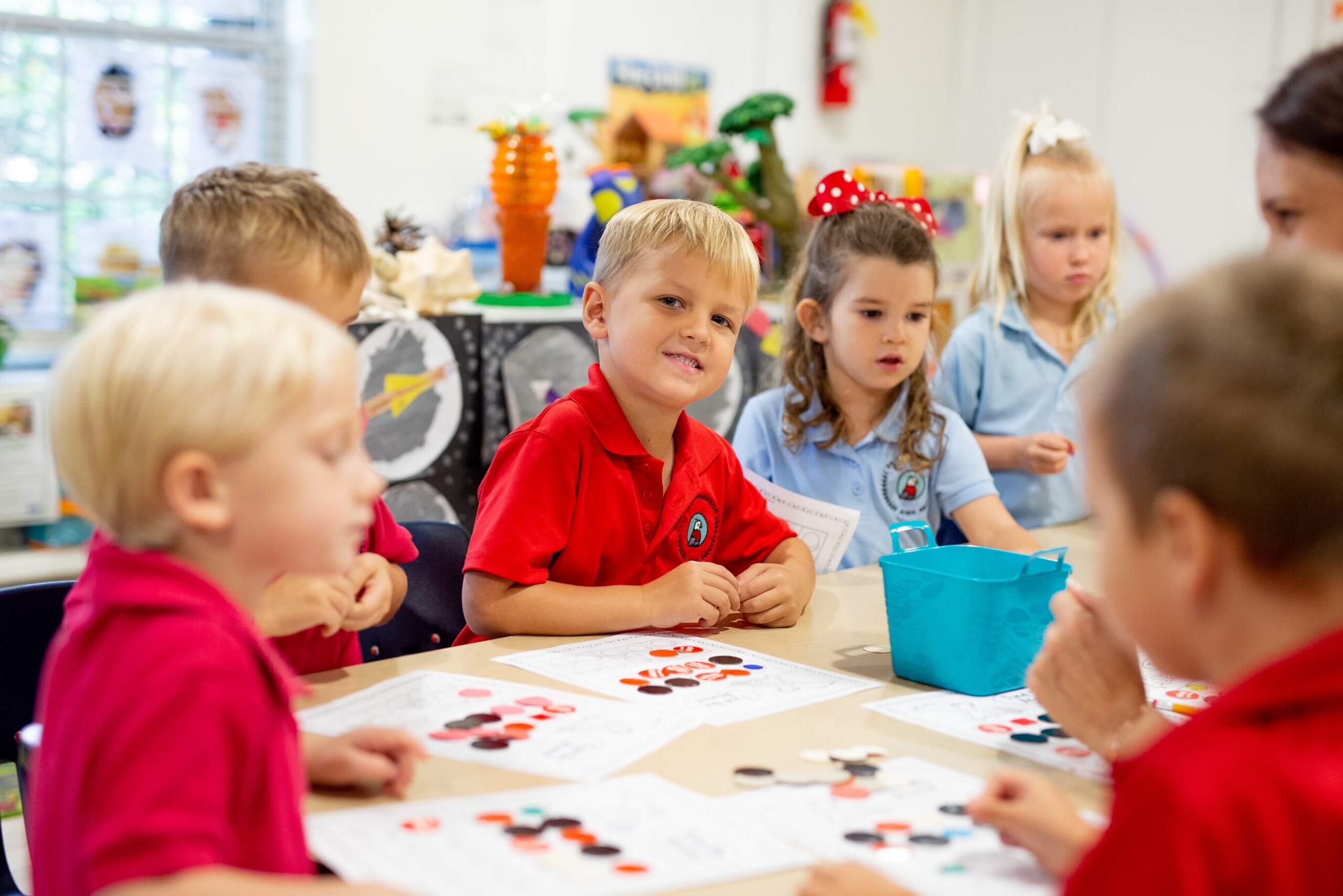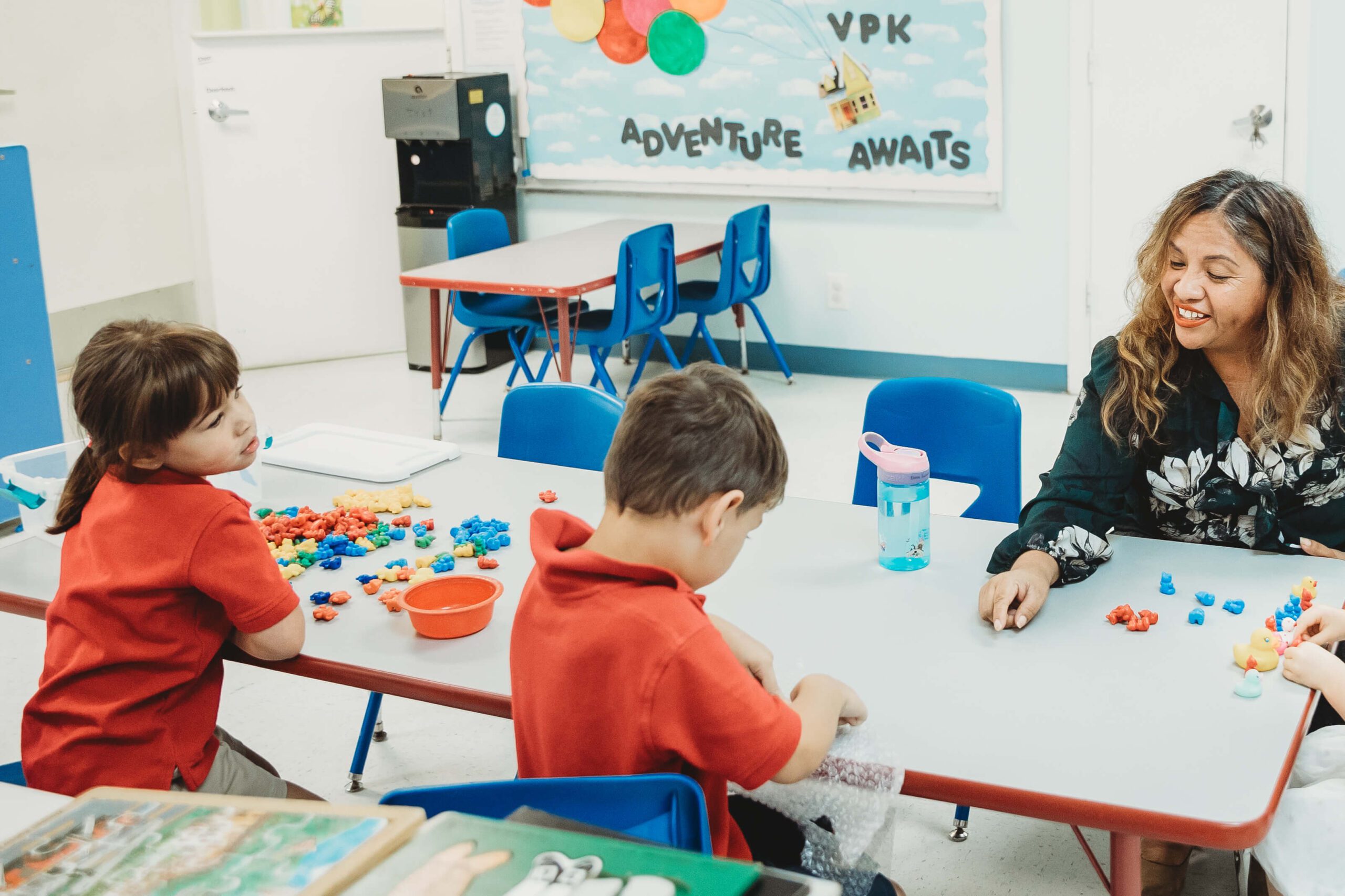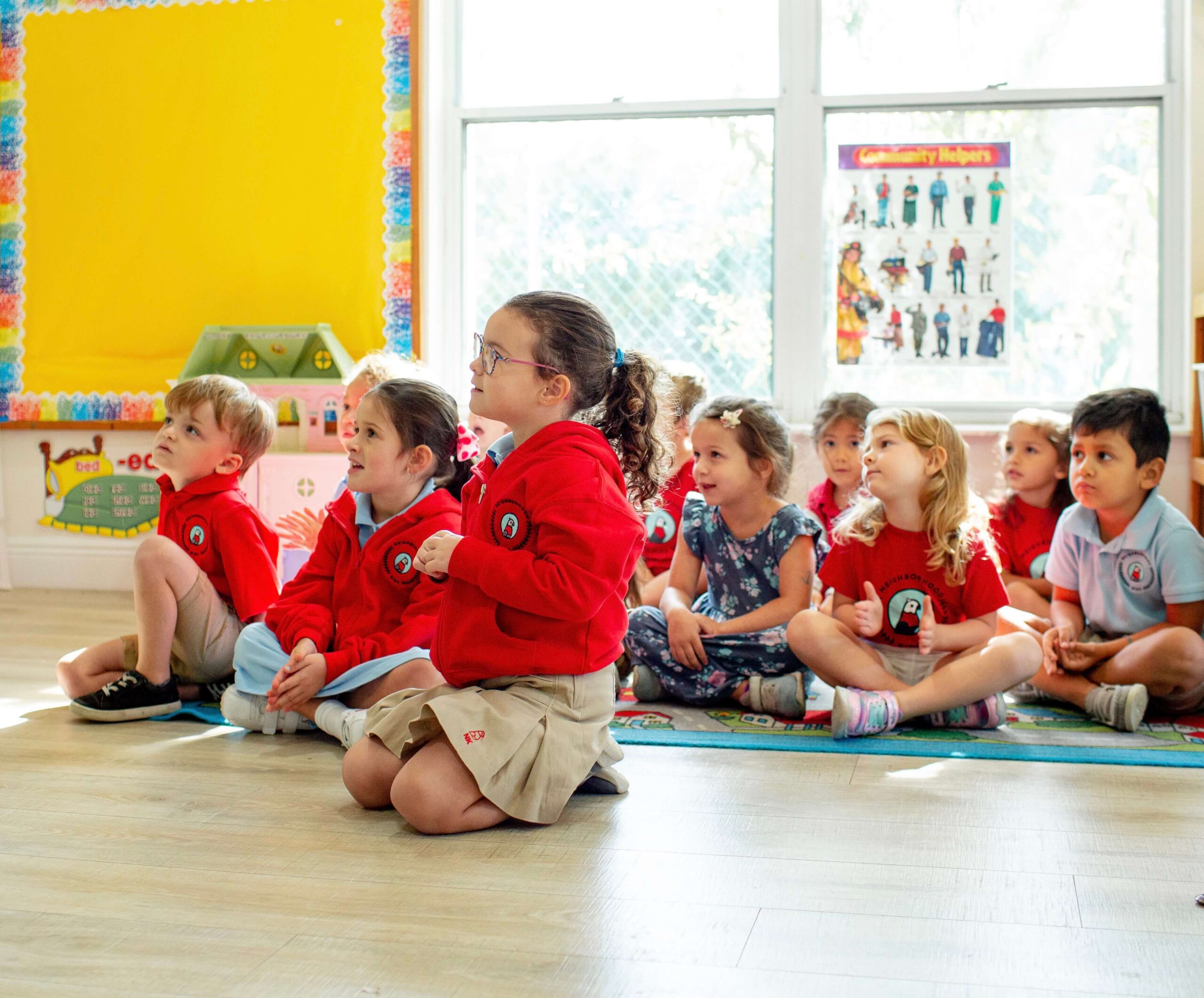Raising a child comes with several challenging phases: when they begin teething and cry all the time, the terrible threes, and the transition once they start going to the best preschool in Royal Palm Beach, FL, every day. Among all of these challenging moments, your kid suddenly displaying aggressive or violent behavior can be one of the toughest ones.
Beyond tantrums and the occasional fight on the playground, children’s aggressive behavior is a complex issue that can occur in various ways and significantly impact a child’s development. We created this guide to help you identify what a child with anger issues looks like and what you can do to help them.

What’s Aggressive Behavior in Children?
Aggressive behavior is fundamentally defined as acts targeted at causing bodily, verbal, or emotional harm to others. Parents may be taken aback when their child exhibits sudden, intense anger, but children frequently behave this way.
Research indicates that up to 25% of young children behave aggressively at some point during their development. As young children learn to manage their emotions and social interactions, some degree of aggression is normal or even expected. However, persistent aggressive behavior can have detrimental effects on a child’s future.
It may affect their capacity to make friends, achieve academic success, and even result in more serious behavioral problems later. Early intervention is therefore essential because the sooner we address these behaviors, the more likely we will be able to help our children develop into well-adjusted, non-hulk-smashing adults.
Why Kids Get Aggressive
Children often exhibit aggressive behavior for several reasons.
- Biological Factors: Some children may have an innate tendency toward aggression. Neurotransmitter imbalances, an important aspect of our brain chemistry, can influence aggression.
- Environmental Factors: Stressful life events, family dynamics, and exposure to violence (even in the media) can all lead to aggressive behavior. Children’s environment influences how they respond to the world around them.
- Psychological Factors: Children who have trauma or have trouble controlling their emotions may be more likely to act out violently. It is how they deal with strong emotions that they cannot yet manage. Children who struggle with self-control and emotional regulation are more likely to exhibit impulsive behavior and aggression together.
- Developmental Disorders and Learning Disabilities: As children struggle to express their needs and negotiate social situations, disorders such as ADHD, autism spectrum disorder, or language delays can all lead to aggressive behavior.
What Childhood Aggression Looks Like
Understanding why childhood aggression is bad is easy—the hard part lies in identifying its signs in your child. A child’s anger management problems are not always as evident as a full-blown outburst in the middle of the grocery store. Children can exhibit a variety of aggressive behaviors, including:
Physical Aggression
When most people hear the term “aggressive behavior,” they most likely think of physical aggression. This is your go-to repertoire of biting, kicking, hitting, and pulling hair.
Verbal Aggression
Verbal abuse can be equally, if not more, damaging than physical aggression. This includes calling names, yelling, and threatening people. These actions can cause emotional wounds that are far more permanent than physical ones.
Relational Aggression
Relational aggression includes actions such as manipulating friendships, spreading rumors, and social exclusion.
Seeing your child manipulate and hurt other people can be too much to handle, making this one of the most difficult forms of aggression to deal with.
Reactive Aggression
Finally, it is critical to recognize the difference between proactive and reactive aggression.
- Reactive aggression is impulsive and unpremeditated; irritations or perceived threats frequently bring it on.
- Proactive aggression is more methodical and focused on achieving specific objectives.
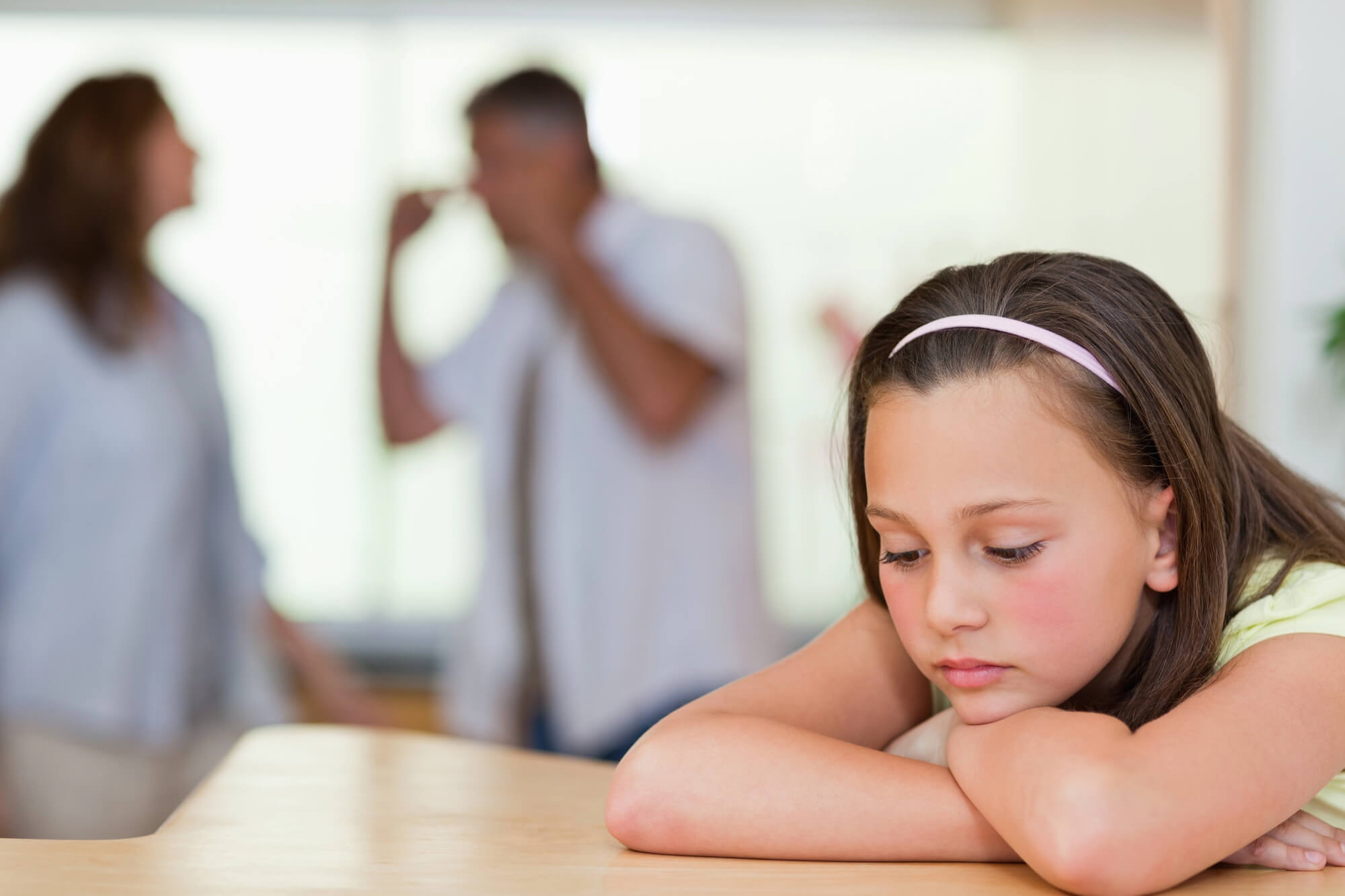
How to Deal with Aggressive Behavior in Children
Identifying your child’s aggressive behavior triggers and patterns is critical to developing effective management strategies. We advise you to keep a behavior log to document your child’s aggressive behavior, including when and where it occurs, what transpired before and after, and any other pertinent information.
Also, record how they acted. Does your child become agitated before losing their temper? Do they begin to breathe heavily or clench their fists? These physical indicators may be precursors to impending aggression, enabling you to spot trends that may offer insightful information.
Attempting to comprehend the purpose of the behavior is also a crucial element. Is your kid misbehaving to gain attention or to avoid doing something they don’t want to do? You can begin addressing the underlying cause of the behavior instead of merely responding to its symptoms once you comprehend the “why” behind it.
Once you understand these factors, you can start taking action to deal with this behavior.
Assessing and Changing Your Child’s Environment
Finally, remember to examine your child’s routine and surroundings. Are there specific times of day when people are more likely to act aggressively? Are there particular people or circumstances that seem to set off aggressive reactions? You can begin taking proactive measures to stop aggressive behavior before it begins by recognizing these patterns.
Positive Reinforcement
First, we have systems of rewards and positive reinforcement. Consistency and specificity are crucial. Saying “good job” is not enough; you should specify exactly what they did well.
“I like how you asked for a turn with words rather than reaching for the toy,” or “That was very patient and kind of you!” are good examples of positive reinforcements.
Teaching Emotional Regulation
Another important tactic is to teach coping mechanisms and emotional control. This is about giving your child the skills to manage strong emotions healthily. Some examples are counting to ten, deep breathing techniques, or using a “calm down corner” to retreat when emotions become too much to handle.
These methods for controlling emotions are frequently emphasized in behavioral strategies for aggression as a crucial element of controlling aggressive conduct. Fostering extracurricular activities, too, can be a way to help them drive their strong emotions in another way.
Implement Discipline
It is also critical to apply discipline strategies consistently. This does not imply punishment; rather, it is about establishing unambiguous expectations and consequences and always carrying them out. It is similar to officiating a game; the rules must be unambiguous and always apply to everyone.
Setting clear boundaries provides a structured and safe environment for your child to express their emotions. The goal is to establish a stable and predictable home environment to help your child learn to control their behavior.
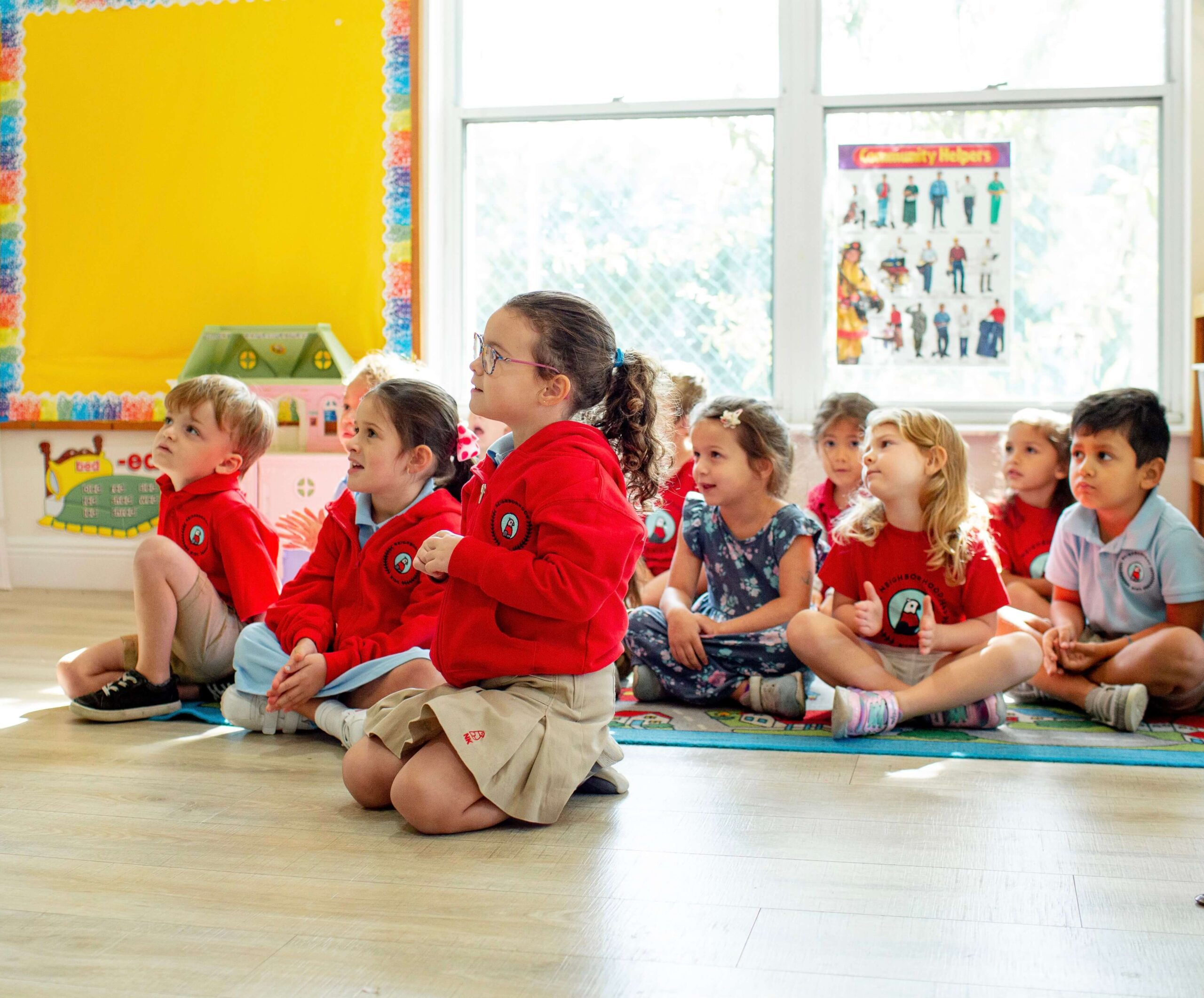
Help Your Child Manage Their Emotions with the Best Preschool in Royal Palm Beach, FL
Aggressive behavior in children is more common than you may think. However, intervening early is key to addressing these actions, understanding them, and devising effective strategies to help them manage their emotions.
It’s important to remember that this will be a long process that requires time, patience, and consistency. However, the professionals at Neighborhood Kids are here to accompany you on this journey. Contact us today to learn more about child education and to find a preschool that will stand next to you and your family every step of the way!















